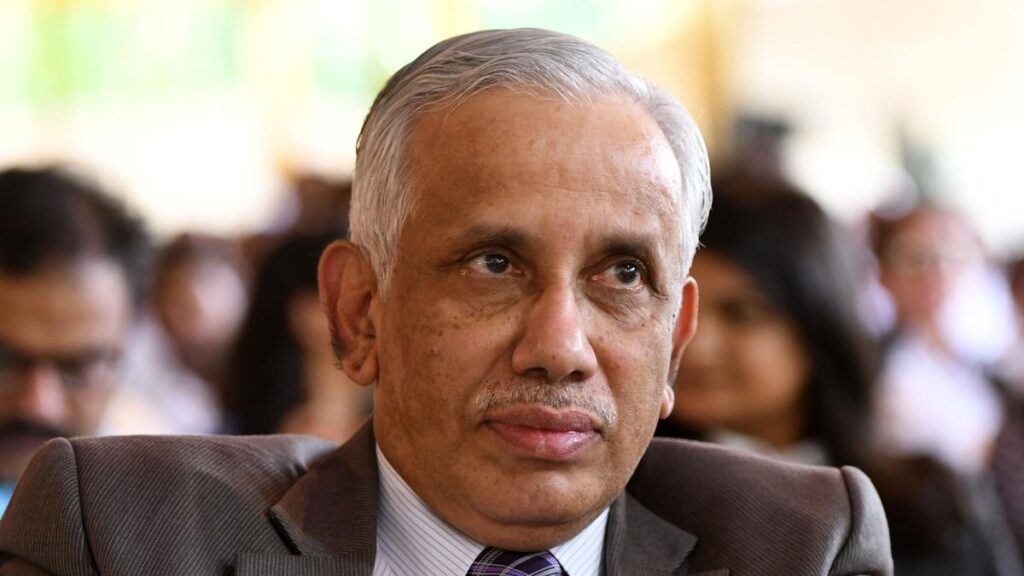Mangaluru, KARNATAKA:
The new Governor of Andhra Pradesh has once said ‘he has lived a dream’

Justice S. Abdul Nazeer, retired Supreme Court judge and the new Governor of Andhra Pradesh, once said “he has lived a dream”.
The man whose face, Supreme Court lawyers say, breaks into a “million dollar smile” before dismissing their cases, started his life’s journey in singularly tough circumstances in Karnataka’s Beluvai and later in Mangaluru.
Chief Justice of India D.Y. Chandrachud narrated how a young Nazeer worked in his uncle’s farms to make ends meet. During those bleak early years, he would scavenge for fish which washed up ashore at the Panambur beach to supplement his family’s income.
Justice Nazeer was born in 1958 into a family of several brothers and a sister. His father died early. He has often spoken about the sacrifices of his mother for the family. Justice Nazeer completed his graduation in Commerce and obtained a law degree from SDM Law College in Mangaluru. He was the family’s first lawyer. He moved to Bengaluru, overcame his natural shyness and “difficulty with the English language” to set up a substantial practice in tax and civil laws.
‘Duck syndrome’
He compared his early years as a lawyer to the “duck syndrome”. “I was like a duck who is seen gliding smoothly on the water, but is actually paddling furiously under the water just to keep itself afloat,” Justice Nazeer said at his farewell from the Supreme Court.
Justice Nazeer was elevated to the Karnataka High Court Bench at the early age of 45, largely owing to the recommendation of Justice R.V. Raveendran, the senior-most local judge of the High Court at the time. He spent 14 years at the High Court before his appointment as a Supreme Court judge on the proposal of a Collegium led by then Chief Justice of India J.S. Khehar in 2017.
Justice Nazeer was not even a Chief Justice of a High Court when he was elevated to the Supreme Court. He was in fact the fourth senior-most among minority community judges of the High Courts.
His tenure gave him opportunities, one after other, to be in the thick of almost every momentous decision of the apex court.
He supported Chief Justice Khehar’s minority view to uphold triple talaq while the majority on the Constitution Bench struck it down. He was part of the nine-judge Bench which upheld privacy as a fundamental right.
Then came his role as the sole minority judge on the Ayodhya Bench, which gave the title of the disputed Ramjanmabhoomi to the Hindus. Senior advocate Vikas Singh said the unanimous Ayodhya judgment showed Justice Nazeer had “placed the nation first, him as a judge second and him as an individual last”.
On Justice Nazeer’s last working day, Chief Justice Chandrachud, who was also part of the Ayodhya Bench, said “Justice Nazeer was not the one who would be neutral between right and wrong but he stood for what is right. We shared the Ayodhya Bench and we worked together and delivered a decision together”.
His last few days as apex court judge saw a Constitution Bench presided by Justice Nazeer uphold the government’s 2016 demonetisation policy as flawless.
Justice Nazeer is also remembered for his speech at the National Council meeting of the Akhil Bharatiya Adhivakta Parishad in Hyderabad in December 2021, highlighting the need to chuck the colonial legal system detrimental to national interest and embrace the “great legal traditions as per Manu, Kautilya, Katyayana, Brihaspati, Narada, Parashara, Yajnavalkya and other legal giants of ancient India”.
Justice Nazeer is known for his fondness for theatre. He writes dialogues and composes songs for his dramas. He is also well known for his Tulu songs. Justice Nazeer has learnt Sanskrit. Chief Justice Chandrachud credits this endeavour to his “diversity, inclusion and openness of mind”.
source: http://www.thehindu.com / The Hindu / Home> News> India / by Krishnadas Rajagopal / February 13th, 2023








